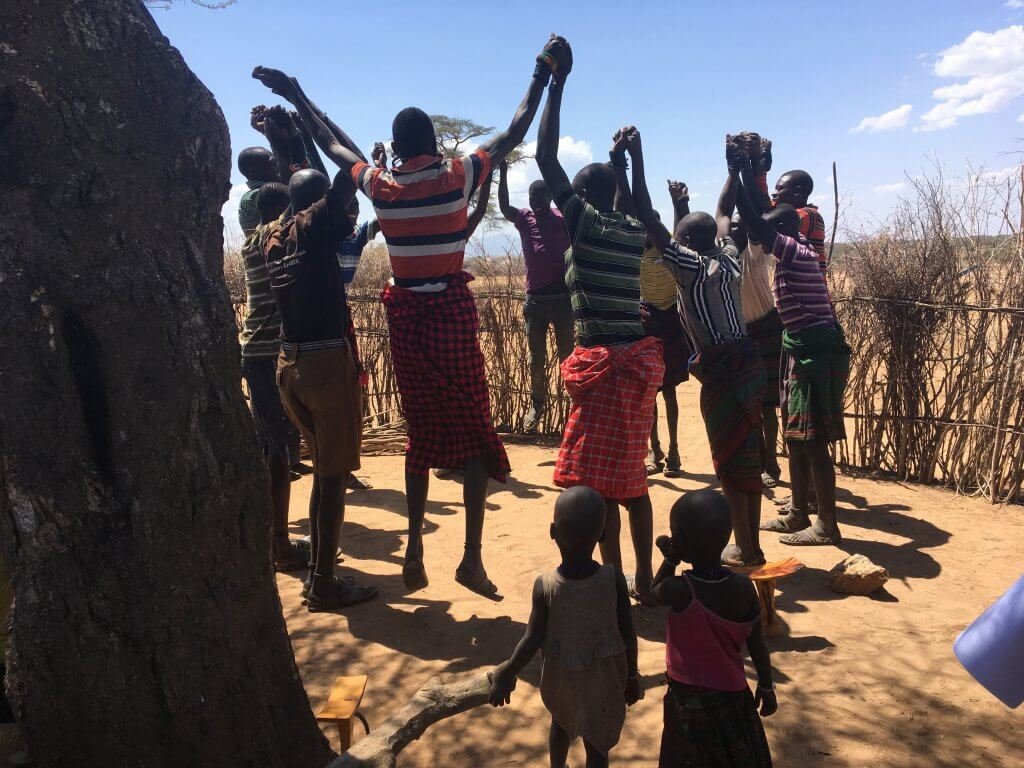12 February, 2019
A bold new vision to end child sexual abuse
Prevent Child Sexual Abuse Programme / Partner story
Photo: © Hamis Basalirwa / Save The Children
All too often, people think that if a problem has been around for a long time it will always be with us. This can be particularly true for an issue like child sexual abuse, which has long been submerged in silence and shame.
“The sexual abuse of children is not something we should accept or even think that we can’t stop. It can be prevented.”
– Caroline Turner, Trustee Oak Foundation
This conviction, backed by growing evidence that it is possible to prevent child sexual abuse, is behind the programme’s new five-year strategy, which launched in December 2018. The Prevent Child Sexual Abuse Programme (Prevent CSA) builds on what we have learned during two decades of working with partners and reflects extensive consultations with other leading thinkers. It is organised into two sub-programmes.
The first sub-programme, Solutions and Advancing Action, seeks to promote, scale and advance solutions to end the sexual abuse of boys and girls. The second sub-programme, Accountability and Ending Impunity, will support efforts to hold global financial and sporting institutions to account for upholding children’s rights. It will also seek to end impunity for those who sexually exploit and abuse children. These strains of work will be strengthened by additional investments in strategic opportunities to support networks, promote advocacy and give voice to survivors.
“Across these next five years, we want to tell real and compelling stories about our partners’ efforts to end child sexual abuse,” says programme director Brigette
Rape can be prevented
Rapes have dropped 50 per cent in several slums in Nairobi, Kenya, thanks to a training programme for boys and girls run by the organisation No Means No, together with its local partner, Ujamaa. In the 12-hour course, girls learn to identify risk, talk themselves out of trouble and gain physical skills to back that up. Boys are taught to challenge harmful beliefs about gender and sexuality and to intervene to stop
Results show that 74 per cent of boys who witnessed physical or sexually assaultive behaviour in the year following the training successfully intervened to stop it. Half of the girls used their skills to stop a rapist in the year following the training, and 20 per cent used the skills more than once. There was a 46 per cent decrease in school dropouts due to teen pregnancy. With support from Oak Foundation, No Means No is bringing this powerful work to scale through its network of master trainers who teach local partners around the world to deliver and evaluate the programme. It is now being taught in Kenya, Malawi, Somalia and South Sudan, and will soon expand to Uganda and the United States.
Intergenerational transmission of violence can be stopped
In post-conflict northern Uganda, peer mentoring for young fathers resulted in a 50 per cent drop of violence in households in just six months. The initiative, known as REAL Fathers (REAL stands for Responsible, Engaged and Loving) promotes stronger bonds between fathers and their young children and healthy relationships between couples. Peer mentors are chosen from the community and trained to work with young fathers to reduce intimate partner violence and the harsh punishment of children.
Several factors contribute to the success of the initiative, for which plans are underway to scale up efforts across the country. In addition to being mentored, fathers have group meetings, and mentors make home visits where they can also talk with wives. Poster campaigns reinforce messages of positive masculinity and fatherhood, as do community celebrations.
“In these post-conflict communities, where most men no longer own land, REAL Fathers offers a way for young men to gain respect and
– Rebecka Lundgren, lead researcher for
The project’s impact extends beyond the present: building strong family bonds and modelling positive gender norms in a child’s early years can act as an important protective shield against sexual abuse of children and adults in the future. As one young father put it: “In the future I want my child to say, ‘Baba (Dad) is the one who made me the way I am. Baba showed me the right way’.”

Photo: © Esther Spindler /IRH
The programme draws inspiration from its Trustee, Caroline Turner, who wants to see substantial change happen in her lifetime. “Child sexual abuse is the most grievous crime that can happen to a child, yet it is often tolerated and goes unpunished,” she says. “By making it our focus, we intend to support the organisations that can change that.”
This grant falls under Oak’s Prevent Child Sexual Abuse (PCSA) programme, and within that our priority funding area of innovative research and promising solutions, that supports efforts to build the evidence base for effective and scalable solutions.
Source: Oak Foundation Annual Report 2018
Related stories: